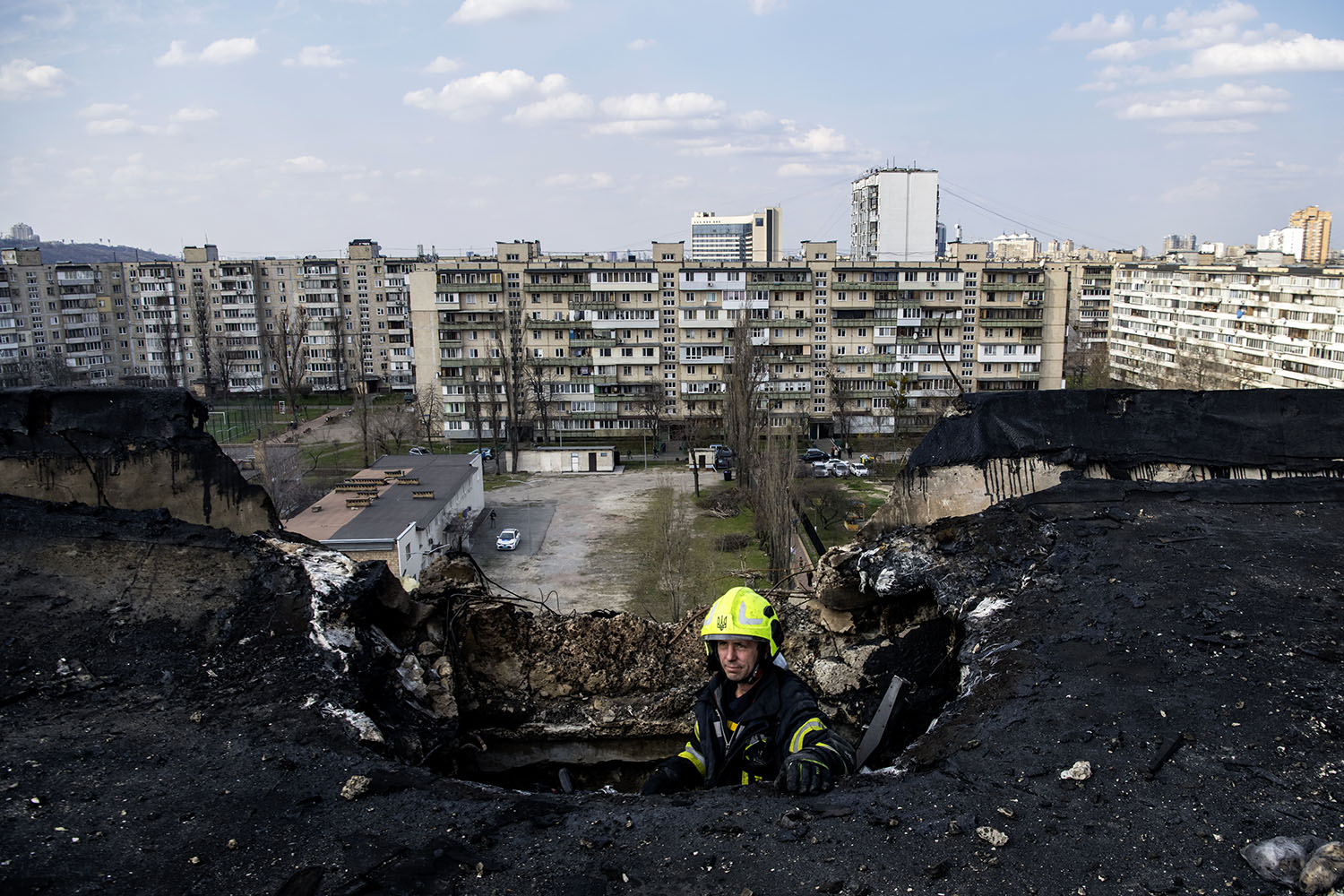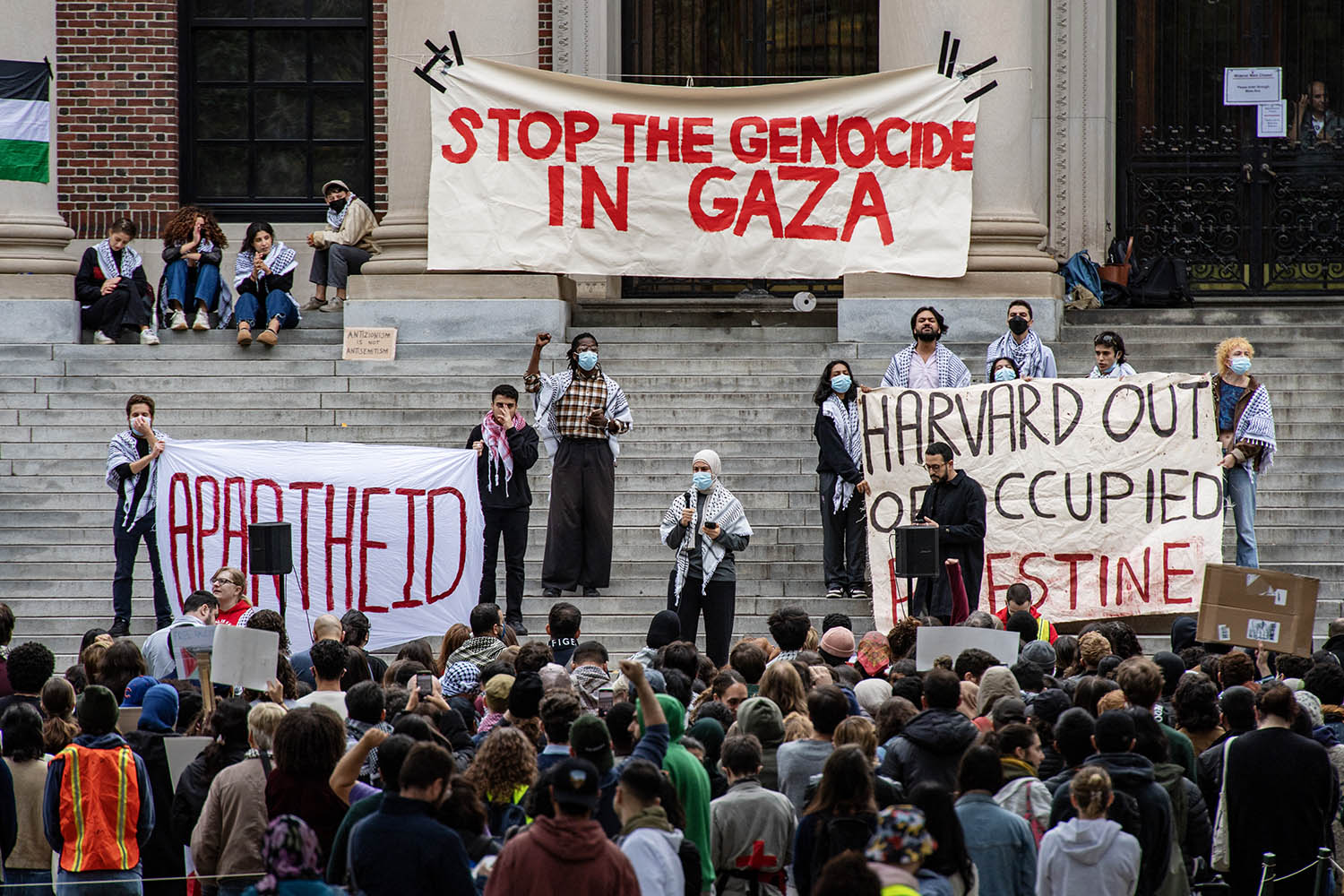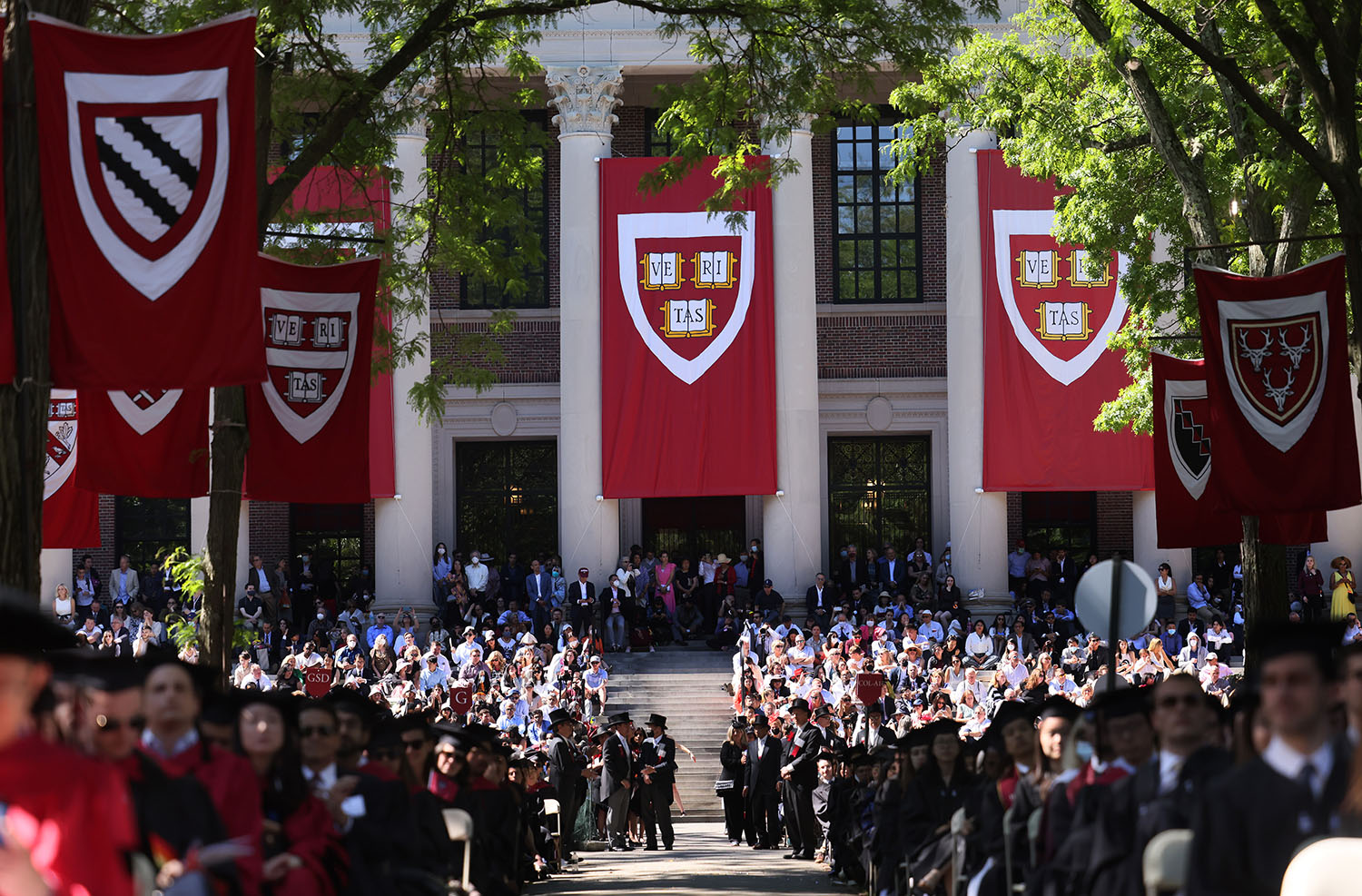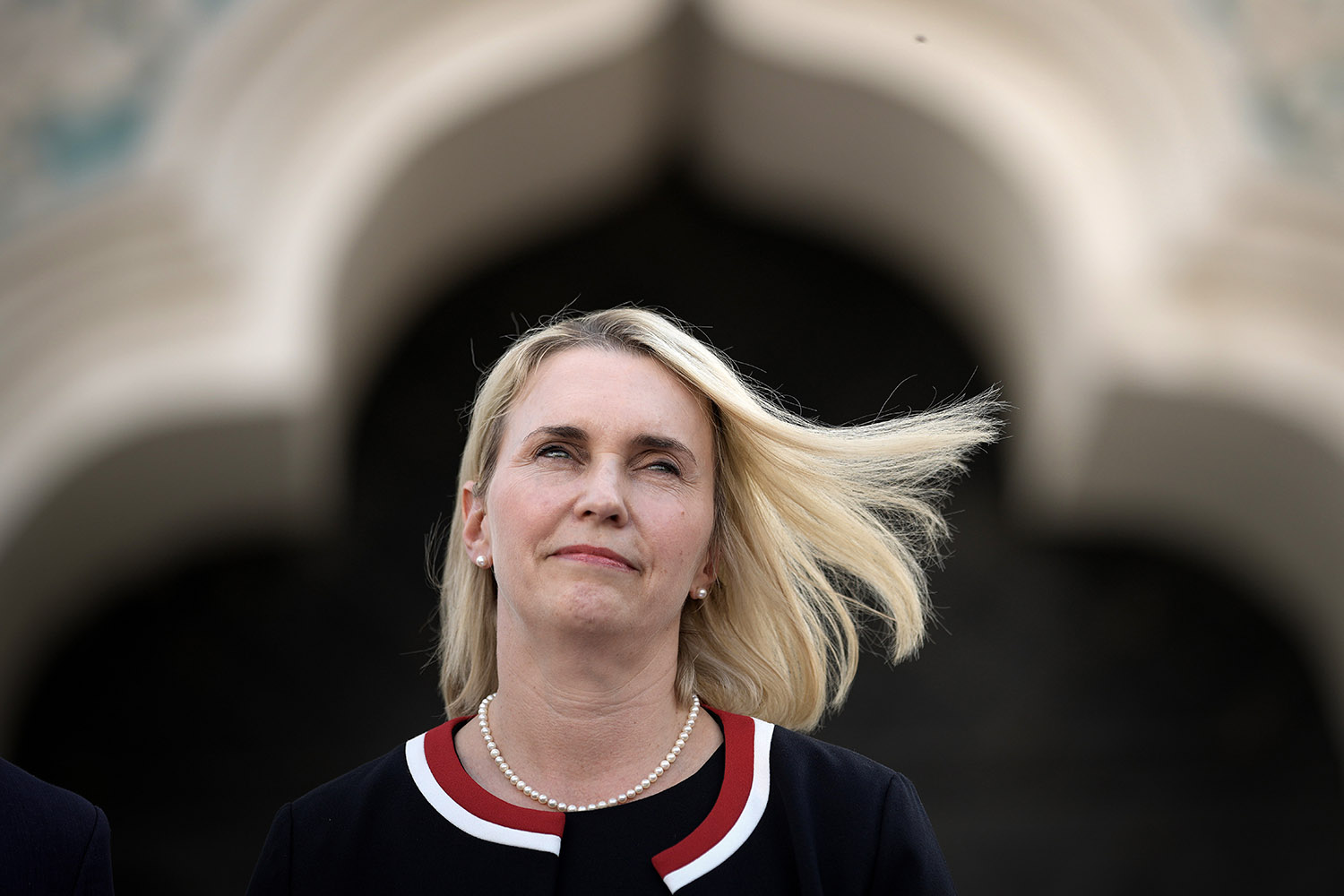
New York’s liberal bastion became a focus of pro-Palestinian protest. Now it’s paying
A 21-year-old Columbia University student sued Donald Trump on Monday after immigration officials tried to deport her. Yunseo Chung moved to the US when she was seven.
So what? Chung is a legal permanent resident arrested earlier this month after taking part in a pro-Palestinian protest on campus. She was ticketed for “obstruction of governmental administration”, which in normal times is nothing close to a deportation offence.
But these are not normal times. Chung filed her lawsuit three days after Columbia University, the New York liberal bastion that educated Barack Obama, Franklin Roosevelt and Ruth Bader Ginsburg, announced sweeping institutional changes that prompt serious questions about
- American academic freedom and funding; and
- America’s commitment to due process and free speech.
The changes include appointing a new official to oversee the college’s Middle Eastern department, hiring dozens of “special officers” allowed to arrest people on campus and searching for new faculty members to “ensure intellectual diversity”.
Checkbook politics. They follow cancellation by the White House of $400 million in federal funds over the university’s alleged failure to address antisemitism. “Columbia is folding,” the conservative activist Christopher Rufo wrote on Friday. “This is only the beginning.”
A little history. Last spring Columbia became the frontline of campus demonstrations over the war in Gaza. Activists set up an encampment and occupied a university building, sparking congressional hearings that by August had driven Columbia’s president out of her job.
A few weeks later a university antisemitism task force found Jews and Israelis had been ostracised and abused on campus while protests were in full flow.
A tale of two students. Yunseo Chung was not at the centre of these protests. That would be Mahmoud Khalil, an organiser and spokesperson for a Columbia group that said it supported Palestinian “liberation by any means necessary, including armed resistance”. Khalil, like Chung, is fighting deportation as a permanent resident. Unlike Chung, he’s Palestinian.
8 March: Khalil is arrested in student housing and accused of violating his student visa. When it’s pointed out that he has a green card, he’s told – without evidence – it has been revoked for “activities aligned to Hamas”.
10 March: a district judge appointed by Obama blocks Khalil’s deportation.
23 March: the Trump administration claims Khalil misrepresented information on his green card application by failing to say he worked for UNRWA in 2023.
Beyond Columbia. Four other universities have faced federal antisemitism investigations, including UC Berkeley, which like Columbia has a strong history of protest movements. Other individuals targeted include:
- Momodou Taal, a Cornell student and UK-Gambia dual citizen, who last week was asked to “surrender” to immigration officials. Taal had pre-emptively filed a lawsuit seeking to have executive orders targeting campus protesters struck down.
- Badar Khan Suri, an Indian national at Georgetown, whose Palestinian wife is the child of a former Hamas adviser. Suri’s deportation has been blocked.
The law. Although it’s unusual to remove permanent residents, the US government has broad powers to deport non-citizens whose presence it deems to have “potentially serious adverse foreign policy consequences for the United States”.
The friction. But the White House is fighting enduring and strong free speech protections and due process rights granted to permanent residents by the US constitution.
The gap. What the government is testing, then, is the distance between the rights granted to permanent residents, including 12.8 million green card holders, and those given to citizens.
Fear factor. The efforts to deport Chung and Khalil have already had a chilling effect. Columbia international students have spoken about their reluctance to travel abroad in case they’re not allowed back.
What’s more… Earlier this month the dean of Columbia’s journalism school told international students at the university “nobody can protect you”, after a colleague advised them not to post about the Middle East on social media. If this is true for students at an elite private research university with a $13 billion endowment, it’s true for anyone.
Photo credit: Yuki Iwamura/APc












